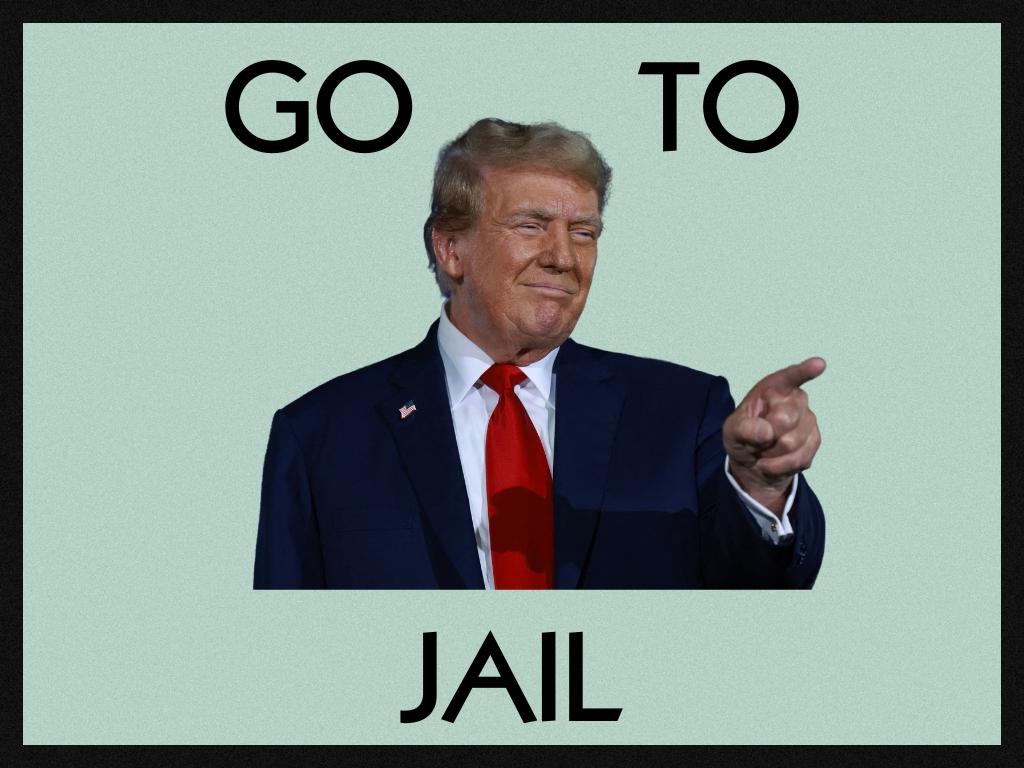Forget the GOP, it’s the Dems who’ve changed beyond recognition


But it’s equally true to say the GOP has muscled in on the political territory vacated by the Democrats, who have changed just as much, at least at the leadership level. The US offers a more extreme version of what’s occurring elsewhere, as parties nominally of the left become pro-establishment barrackers for the status quo, and those of the right the change-hankering radicals.
As he suspended his independent presidential campaign last week and threw his support behind Trump, Robert F. Kennedy Jr lamented how the Democratic Party had become unrecognisable since the time of his father and uncle.
Forget the 1960s, it’s barely recognisable from the 1990s. The party’s platform from 1992, which launched Bill Clinton’s eight years in the White House, is startlingly MAGA in style and substance.

“Democrats pledge to restore government as the upholder of basic law and order for crime-ravaged communities. The simplest and most direct way to restore order in our cities is to put more police on the streets,” promised the Democratic Party’s 1992 platform, well before “defund the police” became a rallying cry for the party’s top politicians.
Tim Walz, the party’s vice-presidential candidate, presided over chaos in Minnesota, where he was governor during the 2020 riots after George Floyd’s death, refusing to call in the National Guard until parts of the state’s biggest city had been trashed.
The number of cops in the police department of Minneapolis collapsed from nearly 900 in 2019 to 565 at the start of 2024, according to the Minnesota Star Tribune newspaper, as officers deserted the force in droves for fear of rotting in prison for trying to do their job.
As Trump routinely brags, practically every police organisation in the country has backed him. Perhaps it’s no wonder then that former president Clinton – who once hoped abortion would be “safe, legal and rare” – spent most of his speech at the Democratic National Convention, one with a “free abortion and vasectomy” clinic parked outside, impugning Trump’s character.
“We believe in a party of free enterprise and the power of market forces,” the platform went on, extolling the virtues of “non-inflationary economic growth” and railing against “ballooning deficits”.
Kamala Harris is fresh from unveiling a national ban on “price gouging”, which even a Washington Post editorial has slammed as dangerously interventionist, even “communist”, after years of her administration supercharging deficits and inflation.
Meanwhile, the Clinton party platform praised “personal responsibility, individual liberty, tolerance, faith, family and hard work”, phrases that weren’t heard within cooey of last’s week jamboree in Chicago. And I almost spat out my cornflakes reading this one from 1992: “Children should not have children; we need a national crackdown on deadbeat parents, an effective system of child support enforcement nationwide, and a systematic effort to establish paternity for every child.”

Clinton promised to “tackle spending … eliminate nonproductive programs … reform entitlement programs to control soaring healthcare costs (and) cut federal administrative costs by 3 per cent annually for four years”.
He delivered by overseeing a reduction in US federal government spending as a share of GDP from 21 per cent in 1992 to 17.5 per cent in 2000. Now it’s at 22 per cent and unlikely to fall any further as climate change spending in the fraudulently named Inflation Reduction Act continues to blow out.
It comes amid sustained calls from some Democrats to roll out a national health service, which has been backed by the likes of Harris and Bernie Sanders since the 2020 national health service plan.
“We call for a revolution in government – to take power away from entrenched bureaucracies and narrow interests in Washington and put it back in the hands of ordinary people,” Clinton’s 1992 manifesto said.
For the past few years the Biden administration has made a show of mocking – and seeking to overrule – conservative school districts that have sought to remove sexually explicit books from primary school libraries.
Clinton hoped to “achieve defence savings and “reduce the size of our forces in Europe”, while the Biden-Harris administration is hellbent on bringing Ukraine into NATO, ultimately paving the way for a costly US military base on the Black Sea to add to those in Italy and Germany – something once considered provocative madness given Russia’s longstanding contempt for the idea.
In 1992, the entire population of undocumented migrants in the US was barely over three million – that’s around a quarter of the inflow over the first three years of the Biden administration. But none of this was a talking point at the DNC.

But perhaps it’s here that the shift has been most dramatic: decades ago parties of the left bristled at massive immigration because it weakened working-class unions and stunted workers’ wages – at least in the shorter term – while overcrowding impaired their quality of life.
Massive immigration benefits mainly the wealthy, inviting cheaper labour and boosting land prices and rents, with most of the aforementioned downsides falling on those who can’t pay to avoid them. For all its flaws and inconsistencies, the Republican Party (and its sister organisations in Europe and Australia) appears to be taking up that mantle.
The final analysis is complex. Like the Democrats, the Republicans are pathetically spendthrift in practice, but there’s little doubt the left and right are trading places in the US across many dimensions, as Democrats become the party of higher-paid workers dependent – directly or indirectly – on government and corporate oligopolies, which increasingly prefer them.
Whatever the moral calculus, whether this proves a winning formula for the Republicans – and even the Liberal-National Coalition at home – remains to be seen.





Donald Trump’s dominance of the Republican Party has invited endless reflections on how far the party of Reagan and Bush has shifted, coaxing a whole new generation of working-class supporters into its ranks.